Type: Article -> Category: AI Development
What is a Full Stack Developer?
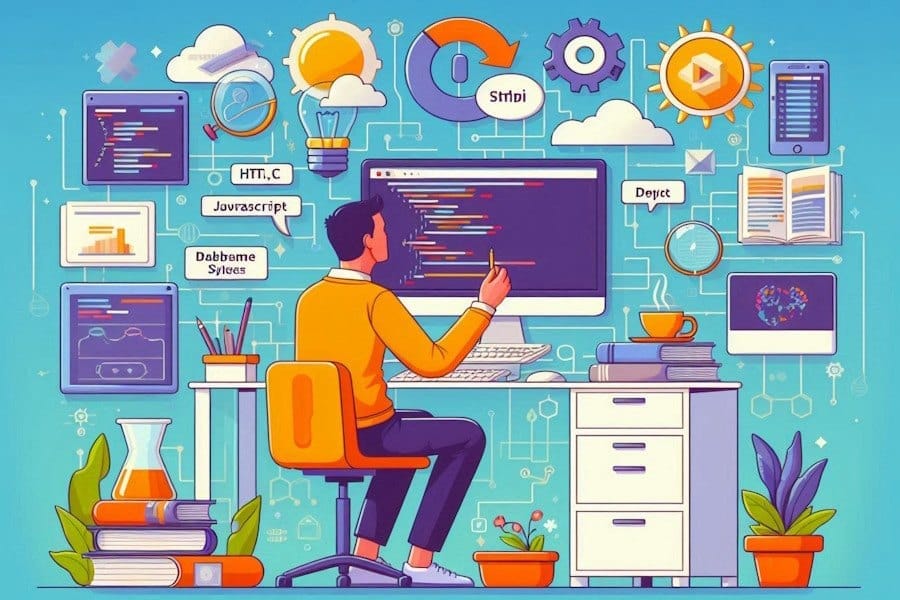
Publish Date: Last Updated: 17th February 2026
Author: nick smith- With the help of CHATGPT
In the ever-evolving world of software development, the term full stack developer has become increasingly prevalent. But what does it truly mean to be a full stack developer?
Accepted Definition of a Full Stack Developer
A full stack developer is a professional proficient in both front-end and back-end development. They possess a comprehensive understanding of how to build, deploy, and maintain an application or website from start to finish. This includes working with databases, servers, system engineering, and clients. Essentially, a full stack developer can handle the entire "stack" of technologies that make up a web application.
An Experienced Perspective
As a developer with over 35 years of experience working with languages and systems like Alpha 5 (one of the first programmable relational databases), Perl, PHP, Visual Basic, JavaScript, and Node.js, I've come to understand full stack development as more than just proficiency in multiple technologies. It's about overseeing the entire development cycle—ensuring code is secure and functional, setting up servers, and managing systems like AWS.
No one can be an expert in every field required to launch a website or system. However, the true skill of a full stack developer lies in their ability to integrate all these components effectively to make a project work.
How to Become a Full Stack Developer
The fastest way to become a full stack developer is to start your own project and see it through to completion. This hands-on experience forces you to engage with all aspects of development, from front-end interfaces to back-end servers and databases. Relying solely on workplace promotions may limit you to specialized roles within a team, slowing your growth into a full stack role.
The specific technologies you choose are less important than understanding the fundamentals and applying them in practice. Continuous learning and adapting to new tools and languages are key components of becoming a successful full stack developer.
Roles and Responsibilities of a Full Stack Developer
A full stack developer wears many hats throughout the development process:
1. Front-End Development
- Crafting user interfaces using HTML, CSS, and JavaScript.
- Working with front-end frameworks like React, Angular, or Vue.js.
- Ensuring responsive design for various devices and screen sizes.
2. Back-End Development
- Developing server-side logic using languages like Node.js, Python, Ruby, or PHP.
- Building APIs and integrating them with front-end components.
- Managing server-side frameworks such as Express.js, Django, or Ruby on Rails.
3. Database Management
- Designing and managing databases (both SQL and NoSQL).
- Writing efficient queries and ensuring data security.
- Working with databases like MySQL, PostgreSQL, MongoDB, or Oracle.
4. Server and Deployment
- Setting up and maintaining server environments.
- Understanding cloud services like AWS, Azure, or Google Cloud.
- Handling deployment processes and continuous integration/continuous deployment (CI/CD).
5. Version Control
- Using version control systems like Git and platforms like GitHub or GitLab.
- Collaborating with other developers and managing code repositories.
6. Security Implementation
- Implementing authentication and authorization.
- Protecting against common web vulnerabilities (e.g., SQL injection, XSS).
- Staying updated with security best practices.
7. Project Management
- Planning and managing the software development lifecycle.
- Coordinating with stakeholders, designers, and other developers.
- Ensuring timely delivery of project milestones.
8. DevOps Practices
- Automating development processes.
- Monitoring application performance and scalability.
- Managing infrastructure as code using tools like Docker and Kubernetes.
9. Problem-Solving and Debugging
- Identifying and fixing bugs across the entire stack.
- Optimizing application performance.
- Conducting code reviews and improving code quality.
10. UI/UX Understanding
- Applying basic principles of user interface and user experience design.
- Collaborating with designers to implement intuitive interfaces.
11. Continuous Learning
- Keeping up with emerging technologies and industry trends.
- Learning new programming languages and frameworks as needed.
Why You Should Become a Full Stack Developer and Its Importance in Small Businesses
Becoming a full stack developer offers a unique blend of skills that can open doors to numerous opportunities. In today’s dynamic tech industry, full stack development stands out as a versatile and rewarding career path. This skill set is particularly invaluable in small businesses, where budgets may only allow for a single developer to manage the company’s entire digital presence.
Why Become a Full Stack Developer?
-
Versatility and Skill Variety
Full stack development combines front-end (user interface) and back-end (server and database) skills, allowing you to build an application or website from start to finish. This diversity not only keeps your work exciting but also increases your marketability as a developer, enabling you to handle a broader scope of tasks.
-
End-to-End Development Control
Full stack developers have a holistic understanding of the development cycle, from the initial design to deployment and maintenance. This allows you to oversee the entire process, ensuring better code quality, faster turnaround, and fewer miscommunications between different team roles. For many developers, this holistic view enhances their problem-solving skills and boosts their career satisfaction.
-
High Demand and Competitive Salary
Full stack developers are highly sought after across industries due to their wide-ranging expertise. Their ability to work on multiple layers of a project enables companies to streamline resources and reduce hiring needs, making full stack developers valuable assets. This demand translates into competitive salaries, which often increase as you gain more experience and proficiency in various technologies.
-
Adaptability to Emerging Technologies
A full stack developer needs to stay updated on both front-end and back-end advancements, making them highly adaptable to emerging trends and new tools. This keeps your skills relevant and positions you as an asset in an industry that constantly evolves. Your ability to pivot to new technologies means you can bring fresh solutions to projects and stay at the forefront of tech.
-
Entrepreneurial Opportunities
Many full stack developers venture into freelancing or startups, leveraging their ability to develop entire projects independently. This skill set is perfect for those who want to launch their own products, build small business websites, or offer end-to-end development services. Full stack expertise empowers you to execute ideas and bring products to market without relying on a large team.
Why Full Stack Skills Are Crucial in Small Businesses
Small businesses operate on limited budgets, meaning they often can’t afford to hire a full team of developers. This is where a full stack developer’s skill set becomes invaluable.
1. Cost-Effective Solution for Limited Budgets
Hiring multiple developers (e.g., front-end, back-end, and database administrators) can be expensive, especially for small businesses. A full stack developer can handle all these aspects, making it a more affordable solution. With one person capable of developing, deploying, and maintaining the company’s digital infrastructure, small businesses get a comprehensive solution without the high cost.
2. Faster Turnaround Time
Full stack developers can streamline the development process, as they don’t need to coordinate between different roles. For small businesses that need rapid iteration and agile responses to market changes, this efficiency is essential. A single developer managing both front and back ends can troubleshoot, adjust, and deploy changes quickly, allowing the business to adapt and innovate faster.
3. Unified Vision and Consistency
A full stack developer brings a unified vision to a project. They understand how the front end (what users see) interacts with the back end (the server and database). This integration helps create a seamless, cohesive experience for users. In a small business setting, where brand consistency and a smooth user experience are critical, having one developer with an overarching view of the project enhances overall quality.
4. Ease of Communication and Collaboration
When only one developer handles the entire tech stack, there’s less room for miscommunication. This is beneficial in small teams, where project communication needs to be clear and efficient. The developer can work directly with other team members—such as designers, marketers, or customer support—ensuring that each aspect of the business aligns with the technology in use.
5. Ability to Scale as the Business Grows
A full stack developer’s skills are adaptable to the evolving needs of a growing business. As the company expands, this developer can help transition the website or system to more complex infrastructure, scale the application, or implement new features. Rather than needing to hire additional developers at each growth stage, a full stack developer can implement scalable solutions that adapt to the business’s future needs.
6. In-House Troubleshooting and Maintenance
For a small business, technical issues can be costly, both in terms of downtime and lost revenue. Having a full stack developer on hand ensures that problems can be diagnosed and resolved quickly without relying on external support. This flexibility reduces the risk of prolonged outages or costly maintenance, ensuring business continuity.
7. Innovation and Agile Development
Small businesses often need to pivot quickly or test new ideas to stay competitive. A full stack developer is well-suited to rapid prototyping and agile development practices, which enable small businesses to experiment with new ideas, features, or design updates. This adaptability is key for a business trying to establish its presence in a dynamic market.
Helpful YouTube Videos on Full Stack Development
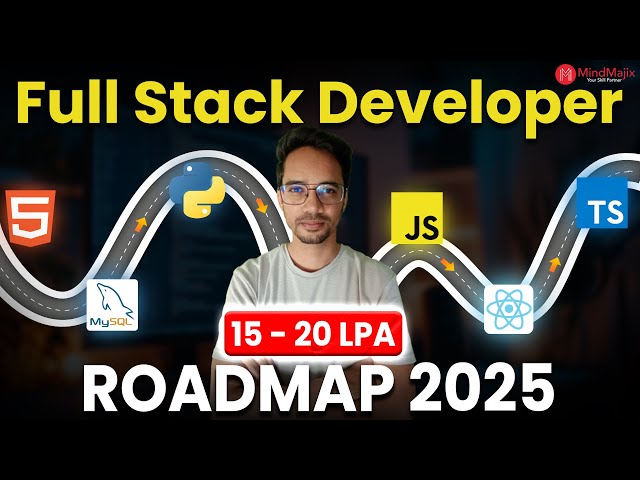
Full Stack Developer Roadmap 2025: Land a High-Paying Job | MindMajix
YouTube Channel: MindMajix
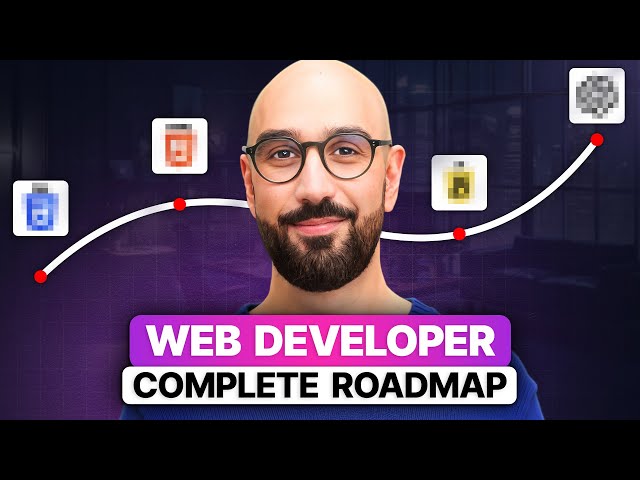
The Complete Web Development Roadmap
YouTube Channel: Programming with Mosh
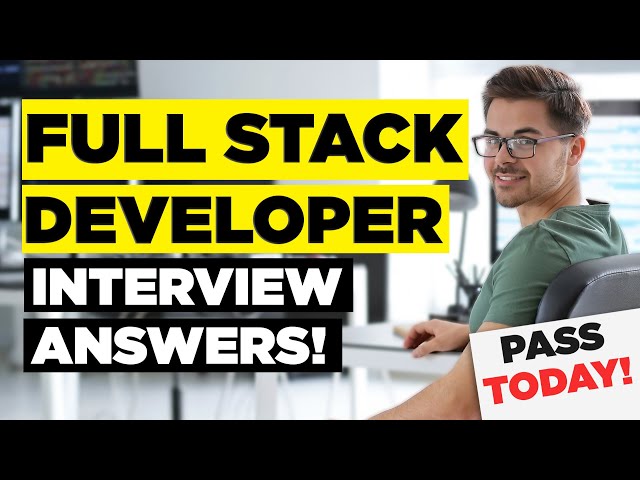
FULL STACK DEVELOPER INTERVIEW QUESTIONS & ANSWERS! (How to Pass a Full Stack Developer Interview)
YouTube Channel: How2Become
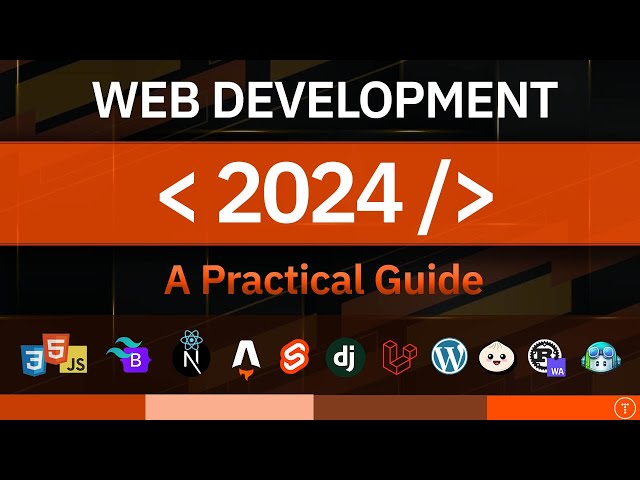
Web Development In 2024 - A Practical Guide
YouTube Channel: Traversy Media
How to Become a Full Stack Developer: Key Skills to Focus On
- Front-End Development: Mastering HTML, CSS, JavaScript, and frameworks like React or Angular.
- Back-End Development: Learning server-side languages such as Node.js, Python, or PHP, along with backend frameworks like Express.js or Django.
- Database Management: Gaining familiarity with databases, both SQL (MySQL, PostgreSQL) and NoSQL (MongoDB).
- Server and Deployment: Setting up and managing servers, handling deployment, and understanding cloud platforms like AWS or Azure.
- Version Control: Learning Git and version control best practices.
- Problem-Solving and Debugging: Developing strong troubleshooting skills across the entire tech stack.
- Security Best Practices: Knowing how to secure applications, implement authentication, and protect data.
Final Thoughts
Becoming a full stack developer is a highly rewarding career path that offers flexibility, high demand, and the ability to contribute meaningfully in any business setting. For small businesses, full stack developers bring invaluable skills, providing a complete solution to their technical needs without breaking the bank. This makes full stack development an ideal career for those who thrive on variety, adaptability, and independence.
Whether you’re a startup founder or a business owner, investing in full stack development expertise can ensure that your digital presence is cohesive, scalable, and well-aligned with your vision.
Latest AI Development Articles
AI Questions and Answers section for What is a Full Stack Developer?
Welcome to a new feature where you can interact with our AI called Jeannie. You can ask her anything relating to this article. If this feature is available, you should see a small genie lamp above this text. Click on the lamp to start a chat or view the following questions that Jeannie has answered relating to What is a Full Stack Developer?.
Visitor asked: How can AI help me become a full stack developer
Jeannie’s answer to the question: In the evolving sphere of information technology, a Full Stack Developer is an exciting role in software development. This specific position entails the knowledge of both front-end and back-end coding, and the aptitude to manage projects that strive for creating a fully functional and efficient software infrastructure. Having a deep understanding of various layers of software development, programming languages, servers, and databases is an essential attribute of a Full Stack Developer. A Full Stack Developer operates on the complete stack of an application – the front-end (client-side) where the user interacts, the back-end (server-side) where the data is managed, and everything in between. This also comprises database management, creating APIs, and even web design - the visual aspects of the user interface. In recent years, the AI development landscape has been witnessing rapid changes and the AI news features this with prominence. Leveraging AI can prove to be impactful in the journey of becoming a talented Full Stack Developer. So, how can AI help you become a full stack developer? In various aspects of software development processes, AI can bring about a significant transformation. AI can expedite the learning curve and also improve efficiency and productivity. Here's how: 1. Smart Coding: AI-powered tools can help you learn languages and coding more efficiently. They can give you smart suggestions while coding, detect bugs, and even fix them instantly. These AI systems can spot patterns and give valuable insights that would usually take years for a developer to understand and learn. 2. Real-time Assistance: AI can provide a real-time coding assistant that guides you with instant solutions and snippets from a vast code database when you are stuck with a problem. Such AI applications use machine learning algorithms to buttress your coding journey and make it smoother. 3. AI in Web Design: AI can help design beautiful and user-friendly websites. AI-powered design tools can create designs based on user preferences and behavior. They can also suggest improvements and optimizations for a better user experience. 4. Test Automation: AI can also contribute to testing automation. It can help in enhancing test strategies, identifying critical areas, and predicting which parts of the application require more testing. 5. Project Management: AI can predict possible bottlenecks, dependencies and help manage different aspects of project management like estimating deadlines or required manpower effectively. In conclusion, the role of a full stack developer is versatile and requires continuous learning. AI can significantly boost the journey of becoming a Full Stack Developer, making one more proficient in creating efficient, user-friendly, and functional software systems. AI development and advancements are presenting exciting opportunities and tools that can drive the software development landscape towards more efficiency and success.
Date: 2025-02-07
Type: Article -> Category: AI Development





